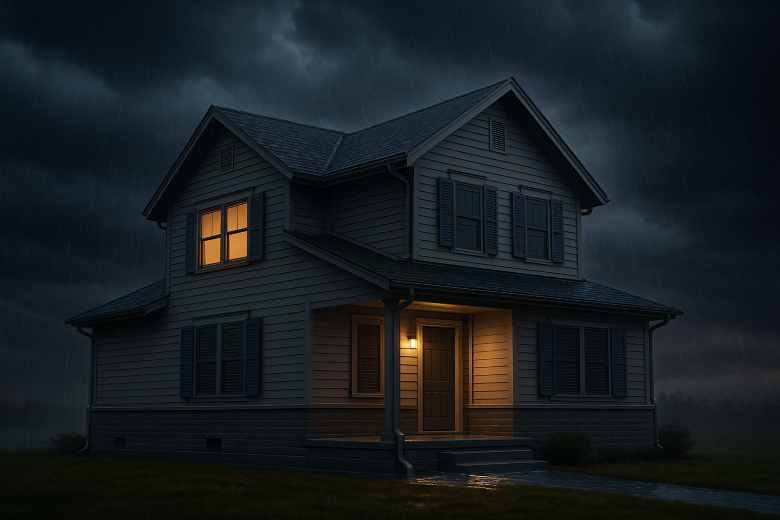Last Updated on May 28, 2025 by Admin
In regions prone to severe weather, the relationship between roof construction and tornadoes is critical. A well-designed roof can be the difference between minor damage and total destruction. Selecting the appropriate roofing materials and designs enhances a home’s ability to withstand the powerful forces of a tornado.
ConstructionCareerHub App is LIVE — built ONLY for construction careers. Don’t apply with a weak resume.
Get ATS-ready Resume Lab + Interview Copilot + Campus Placement Prep (resume screening, skill gaps, interview readiness) — in minutes & Other advanced features.
Explore Smarter Construction Career Tools →Quick check. Big impact. Start now.
Table of Contents
Optimal Roofing Materials for Tornado Resistance
Metal Roofing
Metal roofs are renowned for their durability and wind resistance. Constructed with interlocking panels and secured with screws or clips, they can withstand winds up to 160 mph. Their design minimizes wind uplift, a common cause of roof failure during tornadoes.
Impact-Resistant Asphalt Shingles
Not all asphalt shingles are created equal. Class H asphalt shingles are engineered to endure winds up to 150 mph. Their enhanced adhesive strips and reinforced nailing zones provide additional protection against wind damage.
Concrete and Clay Tiles
Concrete and clay tiles offer substantial weight and strength, making them resistant to high winds. When properly installed with appropriate fastening systems, they can resist wind speeds up to 125 mph.
Roof Design Considerations
Hip Roofs
The shape of the roof significantly influences its wind resistance. Hip roofs, which slope on all four sides, are more aerodynamic and self-bracing compared to gable roofs. This design reduces wind pressure on any single side, enhancing overall stability during high-wind events.
Enhancing Roof Integrity
Continuous Load Path
A continuous load path ensures that the roof, walls, and foundation are connected in a way that distributes wind forces throughout the structure. This integration helps prevent sections of the home from separating under stress.
Hurricane Straps and Clips
Installing metal connectors, such as hurricane straps and clips, reinforces the connection between the roof and walls. These devices provide additional anchoring, reducing the likelihood of the roof lifting off during a tornado.
Insurance Implications
Investing in tornado-resistant roofing can also have financial benefits. Some insurance companies offer discounts for homes equipped with impact-resistant roofing materials. However, it’s essential to review your homeowners insurance policy to understand coverage specifics related to wind and storm damage.
Challenging a Denied Claim
If your insurer denies a tornado-related roof damage claim, you have the right to challenge the decision. Begin by requesting a written explanation detailing the denial. Carefully review your policy to ensure the damage isn’t covered under hidden exclusions. If the denial appears unjustified, legal professionals can help build a strong case for reconsideration.
Seeking Legal Support
Homeowners facing denied or underpaid claims often benefit from consulting an attorney. Insurance laws can be complex, and insurers sometimes rely on vague language to limit payouts. An experienced lawyer can interpret the fine print, correspond with the insurer on your behalf, and represent you in negotiations or litigation if necessary to pursue fair compensation.
Bad Faith Insurance Practices
If an insurer deliberately avoids paying a valid tornado damage claim, this could constitute bad faith. This includes delayed responses, unreasonable documentation demands, or deceptive policy interpretations. Homeowners may be entitled to compensation beyond the original claim amount, including punitive damages. Legal action in these cases not only helps the individual homeowner but also discourages industry-wide misconduct.
Conclusion
Selecting the right roofing materials and designs is a proactive step in safeguarding your home against tornadoes. By focusing on wind-resistant materials, aerodynamic designs, and reinforced connections, homeowners can enhance their property’s resilience and potentially reduce insurance costs. Consulting with roofing professionals and reviewing insurance policies ensures a comprehensive approach to tornado preparedness.
Related Posts:
- Benefits to the Homeowner and the Certified Roofing Contractor
- Roof Materials for Post-Storm Damage Repair
- The Ultimate Guide to Storm Door Repair: Everything You Need to Know
- Why Roof Inspections Matter: Advice from The Hills District Roofers


